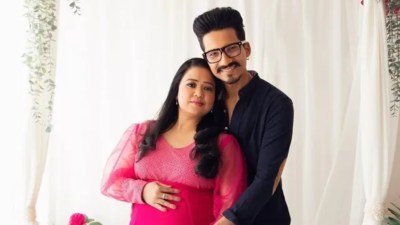The Chinese Template
Yao Ming plays for the Houston Rockets in the NBA League. At the opening ceremony of the Athens Olympics, Yao caused a 8216;8216;traffic j...

Yao Ming plays for the Houston Rockets in the NBA League. At the opening ceremony of the Athens Olympics, Yao caused a 8216;8216;traffic jam8217;8217; during the athletes8217; marchpast when he was mobbed by the contingent from St Lucia.
Yao Ming is Chinese.
Lu Xiang was described in his country8217;s official handbook as 8216;8216;a medal hope in Athens and even a gold medal hopeful when he runs on home soil at the 2008 Beijing Olympic Games8217;8217;. Instead, in a premature star birth, Lu equalled the Olympic record and won the 110m hurdles in a canter.
Lu Xiang is Chinese.
Luo Xuejuan is probably the greatest breaststroker of all time. No American or Australian swimmer can, it would appear, finish ahead of her. Not one did in the 100m breaststroke final at Athens.
Luo Xuejuan is Chinese.
There8217;s a spectre haunting Western sport. The spectre is Chinese.
At the Olympics, sports writers and officials from Melbourne to Milan, still recovering from China8217;s 32 gold medal slam dunk, saw its ascendance to the top spot in 2008 as inexorable, inevitable. The US finished number one in Athens, with 35 golds. In four years, prepare for a coronation in the Forbidden City.
How do the Chinese do it? What8217;s their magic ginseng? 8216;8216;Our system,8217;8217; says Yue Zhou Ma 8212; an army officer in Athens as a reporter for the military-run PLA Daily 8212; 8216;8216;is a lot like the sports system in the old Soviet Union.8217;8217; It is the last if dazzling legatee of a bygone age, sports as command economy.
Yue explains: 8216;8216;If a child is good at, say, badminton, he is taken out of a normal school and put into a special school, where the stress on academics is not that much.8217;8217; When the child reaches middle school, the state takes another call. It assesses whether the boy can go further in sport. If so, he goes to the sports school for children his age. If not, he reverts to a mainstream middle school.
An identical decision is taken at the high school stage. By then the trainee-athlete is probably already knocking about with the national team. There are 4,000 such sports schools strewn all over China.
The human talent so gathered is given enough outlet in a ferociously competitive domestic circuit. Every one of China8217;s 31 provinces and major cities has its own sports structure and teams for a range of disciplines. This gives China enormous reserves. In some sports, it is has two or three back-up teams for the regular national contingent ready at any given time.
As one of the most important social institutions in China, the army is deployed in the national sporting interest. 8216;8216;Each PLA unit,8217;8217; says Yue, 8216;8216;specialises in a particular sport. You are given a posting as per your expertise in a sport.8217;8217;
Every PLA unit has to do something other than just defend the country. Yue8217;s unit specialises in journalism, which is why he was in Athens as a sports reporter.
Using the army provides the sporting equivalent of strategic depth but rules out any sudden changes or surprise career moves. For instance, Major Rajyavardhan Singh Rathore took up shooting on a impulse six years ago. In China, this would have been impossible, unless he was assigned to the army unit specialising in shooting when he joined the PLA. That initial posting itself would have been a function of specialising in shooting while in school.
China spends vast amounts on sport. 8216;8216;Six billion rmb 720 million8217;8217; is Yue8217;s estimate. This includes the money spent on sports schools, regional tournaments, hiring foreign coaches where necessary. William Harris, formerly of the LA Lakers, coaches the basketball team that Yao Ming has sworn to take to a medal in 2008. The softball team has a foreign coach. Michael Jonhson has conducted sprinting clinics in Beijing. It all adds up, it all costs money.
While the bulk of the funding comes from the government, corporate sponsorship is growing. The Chinese Olympic Committee8217;s principal partner-sponsor is General Motors China. In addition, companies such as Dalian Zhen-ao Bioengineering and Budweiser Wuhan put in money for the Athens effort.
Unlike India, China sees retired sportsmen as something more than a liability. It has a network of at least six sports universities. These don8217;t train Olympians but train those who go on to train Olympians.
The sports universities provide an education in coaching, sports medicine, sports psychology, sports science. Most if not all of their graduates are former sportsmen. To cite one example, Xu Haifeng was in Athens as chief coach of the shooting team.
Old-timers may remember Xu as the man who won China its first gold medal in its comeback Games in 1984. Xu the shooter was a product of the Chinese sports schools system. Xu the coach is a product of the Chinese sports university system.
Schools and universities, together they8217;re teach the world some lessons. By 2008, China hopes it will be 50 gold medal lessons.
- 01
- 02
- 03
- 04
- 05































